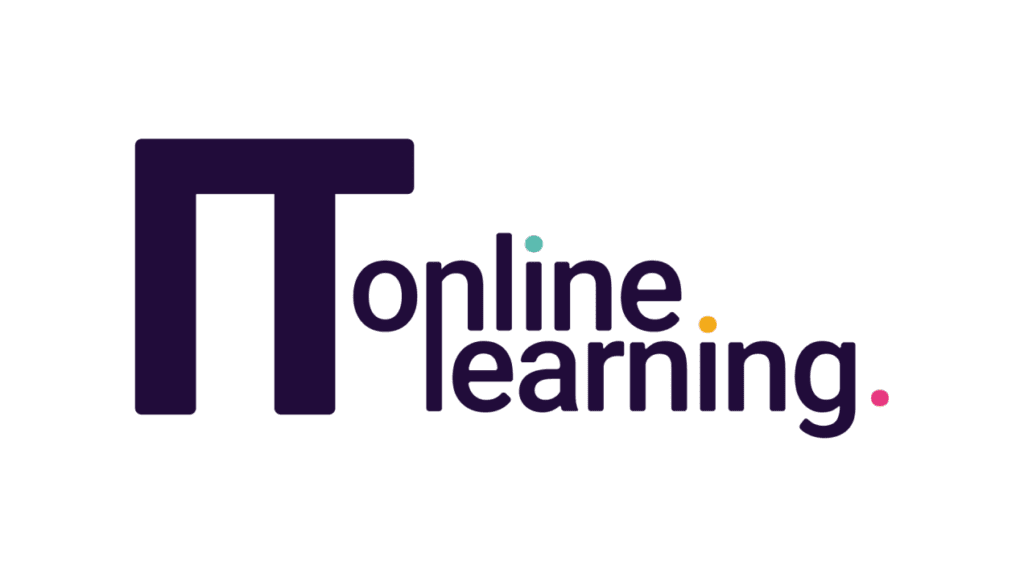You are a curious tech enthusiast, scrolling through endless job postings, when you notice a common thread – HTML, HTML, and more HTML!
You wonder, “Could learning this be the key to kick-starting or growing my tech career?”
In a Stack Overflow Developer Survey, HTML/CSS was rated the second most popular technology, with 56.07% of respondents indicating they use it.
In this post, we’re gonna learn about HTML, the skills that matter, and the most effective ways to begin learning HTML today.
By the end of this post, you will be armed with a crystal-clear roadmap to start your HTML education and confidently take that first step towards a rewarding tech career in the UK.
HTML in Web Development: What Is Its Role?
Hypertext Markup Language (HTML) is widely considered the backbone of the Internet. The reasons are many, but typically fall into the following:
- It provides the structure and content of a web page, including headings, paragraphs, images, and links.
- HTML tags define the different elements of a web page, including <h1> for headings and <p> for paragraphs.
- It helps create hyperlinks, allowing users to navigate between web pages and websites.
- Web browsers read HTML code to render and display web pages for users.
- Search engines use HTML tags and structure to understand and index web page content.
- HTML provides structure and meaning to the content of every web page.
- It is a non-negotiable skill for people interested in a technology career, whether you work as a front-end developer, full-stack programmer, or web designer.
But what about the demand for HTML skills in the UK tech job market? Employers across a number of sectors are actively hiring professionals who demonstrate proficiency in HTML and other coding technologies.
HTML Is Not a Standalone Skill, However
It works seamlessly with other programming and markup languages like CSS (for styling) and JavaScript (for interactivity). This is what makes it a versatile tool in any tech professional’s arsenal.
Whether you want to create visually stunning websites, develop interactive applications, or optimise digital experiences, HTML is the common denominator that connects them all.
HTML Skills (and Why They Matter)
| HTML Skill | Why It Matters |
| HTML document structure | Organises content properly and creates a clear hierarchy. |
| HTML tags and elements | Defines content structure and meaning. |
| HTML attributes | Adds extra information and functionality to elements. |
| Semantic HTML | Makes content more accessible, improves SEO, and simplifies maintenance. |
| HTML forms | Lets users input data and interact with the web page. |
| HTML tables | Presents tabular data in a clear and organised way. |
| HTML lists | Structures and styles lists for easier reading. |
| HTML images | Adds visual content to engage users. |
| HTML links | Connects web pages and helps users navigate. |
| HTML multimedia (audio and video) | Makes content more interactive and engaging. |
| HTML meta tags | Provides important information for SEO and browser functionality. |
| HTML character entities | Displays special characters and symbols the right way. |
| HTML iframe | Embeds external content directly into a web page. |
| HTML layout and sectioning | Creates a logical and visually appealing content structure. |
| HTML5 APIs (e.g., Geolocation, Web Storage) | Adds extra functionality and improves user experience. |
| HTML accessibility | Makes content accessible to users with disabilities. |
| HTML best practices and coding standards | Keeps code clean, maintainable, and efficient. |
How To Start Learning HTML the Right Way
You should now understand the HTML skills required to become a proficient professional in this markup language.
While there are plenty of free resources like YouTube videos, coding challenges and more that teach the basics of HTML syntax and structure.
And these resources are a great way to learn about web development and help you get started with learning code.
These Free Resources Are Not Enough, However
However, these resources are not without their limitations, especially in providing comprehensive, in-depth training.
That’s where the Coding Career Programme provided by ITonlinelearning comes in!
This specialist UK coding programme trains you to master various programming languages and technologies, building your skills and confidence to succeed in the industry.
ITonlinelearning Coding Career Programme
The best way to learn HTML (and any coding language) is through hands-on practice and real-world projects.
Our Coding Career Programme is the most comprehensive training we’ve created for learning coding from A to Z.
You will apply what you learn to real-world projects, including a website project you will build with the help of expert tutoring and support.
Course level 1: HTML, CSS, JavaScript.
Course Level 2: Git / GitHub / Python / CMD ( Command Line).
Course Level 3: Amazon Web Services.
Course Level 4: Microsoft Azure.
You benefit from:
Practical projects and assessments.
One-to-one tutor support.
Video tutorial and step-by-step instructions.
Recruitment support to land a job and start or advance your career.
24/7 course access for the next 12 months.
Why You Should Choose ITonlinelearning To Learn Coding and HTML
Our Coding Career Programme provides the most comprehensive, practical experience and support you will ever need to succeed in the tech industry.
A. Comprehensive Curriculum: From HTML Fundamentals to Advanced Topics
At ITonlinelearning, we understand that a solid foundation matters to mastering coding languages.
That’s why our curriculum covers both the fundamentals and advanced topics of HTML, allowing you to develop a well-rounded understanding of this technology.
From basic syntax and structure to semantic markup and accessibility, our programme explores all the essential aspects of HTML that you need to know.
B. Hands-on Projects and Practical Experience
The best way to learn coding is by doing. Our Coding Career Programme emphasises hands-on learning and practical projects.
Throughout the programme, you will work on real-world projects that resemble the tasks you will encounter in a professional environment.
Applying your HTML skills to practical situations will give you the confidence and experience to tackle any coding challenge.
C. Supportive Learning Environment with Expert Instructors

As a UK certification provider with experience delivering expert career training solutions, we understand the power of a supportive and inclusive learning environment that is tutor-led and focuses on your individual learning needs.
Our experienced tutors are coding professionals themselves.
They will provide personalised guidance, feedback, and support throughout your learning journey.
Part of this is access to resources and the necessary help to master HTML and achieve your goals.
D. Career Guidance and Job Placement Assistance
Landing your dream tech job or advancing into a career and job you desire in the UK is the ultimate goal; we never lose sight of that.
Our Coding Career Programme provides comprehensive career services and job placement assistance to help you navigate the job market and showcase your skills to potential employers.
From creating a standout resume to preparing for technical interviews, our recruitment understands the job landscape for tech professionals in the UK.
We help you prepare and show up ready to ace your interviews and land your ideal job.
Ready to start your coding journey with ITonlinelearning?
Explore how our Coding Career Programme can help you achieve your professional goals.
Frequently Asked Questions
Yes, HTML remains the standard markup language for creating website pages. Meaning, it remains the foundation of web development today.
2. Should I Learn HTML and CSS before Javascript?
It is recommended to learn HTML and CSS before JavaScript, as they provide the structure and styling for web pages, while JavaScript adds interactivity.
3. How is HTML different From Other Programming Languages?
HTML is a markup language used for structuring content, while other programming languages are used for creating dynamic functionality and complex applications.
4. Are HTML and CSS programming Languages?
HTML and CSS are not programming languages; they are markup and styling languages, respectively.
5. Can HTML Files Contain Viruses?
HTML files can contain malicious code, but the file itself is not a virus. It is important to download HTML files from trusted sources.
6. Can HTML Be Used To Make Apps?
HTML alone cannot create apps, but it can be used in conjunction with other technologies, such as CSS, JavaScript, and frameworks, to build web applications.
7. Can HTML Be Done In Mobile?
Yes, HTML can be written and edited on mobile devices using various code editors and integrated development environments (IDEs) designed for mobile platforms.
8. What does HTML Stand For?
HTML stands for Hypertext Markup Language.
9. Where is HTML Used?
HTML is an important part of web development and is used to create the structure and content of web pages.
10. Who Invented HTML?
HTML was invented by Tim Berners-Lee, a British computer scientist, in 1989 while working at CERN.
Learning HTML Is Just the Beginning
As you develop your coding skills and keep abreast of the latest industry trends, we at ITonlinelearning encourage you to delve deeper into the various front-end technologies, tools, and approaches available to further enrich and develop your web development capabilities.





